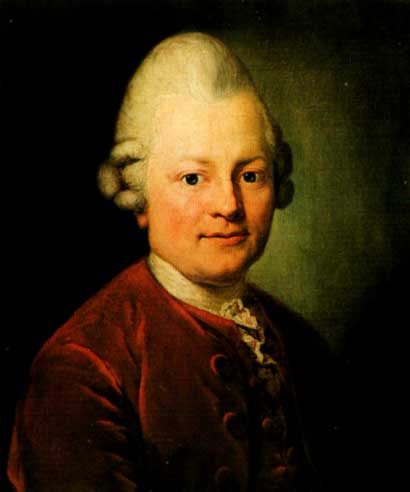Dramaturge on:
[Wikipedia]
[Google]
[Amazon]
A dramaturge or dramaturg is a literary adviser or editor in a
 Gotthold Ephraim Lessing was hired by the
Gotthold Ephraim Lessing was hired by the
Literary Managers & Dramaturgs of the Americas
official website of the organization of these professionals in North America Dramaturges Theatrical occupations {{theatre-stub
theatre
Theatre or theater is a collaborative form of performing art that uses live performers, usually actors or actresses, to present the experience of a real or imagined event before a live audience in a specific place, often a stage. The perform ...
, opera
Opera is a form of theatre in which music is a fundamental component and dramatic roles are taken by singers. Such a "work" (the literal translation of the Italian word "opera") is typically a collaboration between a composer and a libr ...
, or film company who researches, selects, adapts, edits, and interprets scripts, libretti, texts, and printed programmes (or helps others with these tasks), consults authors, and does public relations
Public relations (PR) is the practice of managing and disseminating information from an individual or an organization (such as a business, government agency, or a nonprofit organization) to the public in order to influence their perception. ...
work. Its modern-day function was originated by the innovations of Gotthold Ephraim Lessing, an 18th-century German playwright, philosopher, and theatre theorist.
Responsibilities
One of the dramaturge's contributions is to categorize and discuss the various types of plays oropera
Opera is a form of theatre in which music is a fundamental component and dramatic roles are taken by singers. Such a "work" (the literal translation of the Italian word "opera") is typically a collaboration between a composer and a libr ...
s, their interconnectedness and their styles. The responsibilities of a dramaturge vary from one theatre or opera company to the next. They might include the hiring of actors, the development of a season of plays or operas with a sense of coherence among them, assistance with and editing of new plays or operas by resident or guest playwrights or composers/librettists, the creation of programmes or accompanying educational services, helping the director with rehearsals, and serving as elucidator of history or spokesperson for deceased or otherwise absent playwrights or composers. At larger theatres or opera houses, the dramaturge works on the historical and cultural research into the play or opera and its setting.
In theatre companies, a dramaturge will create a workbook for the director and actors (usually these are different) and work extensively with the director prior to the first rehearsal.
History
 Gotthold Ephraim Lessing was hired by the
Gotthold Ephraim Lessing was hired by the Hamburg National Theatre
The Hamburg Enterprise (german: Hamburgische Entreprise), commonly known as the Hamburg National Theatre, was a theatre company in Hamburg (now Germany), that existed 1767–1769 at the Gänsemarkt square, and that was led by Abel Seyler. It was ...
in 1767, to serve as the theatre's critic of plays and acting, a position which would later be named dramaturge. This position grew over time to what it is today, encompassing the wide variety of tasks seen by modern dramaturgies.
Discrepancies with definition
The modern definition of ''dramaturge'' is often debated as to what specific tasks this job does, with some defining it as the bridge between the director and the actors, others defining it as one who determines the meaning of plays and shows for the actors, and others claiming that even they don't quite have a complete definition for their job. This discrepancy between dramaturges is likely due to the lack of an official historical definition, and the wide variety of tasks that dramaturges could be asked to work on, depending on the theatre, director, the show being produced, and the actors. Since Gotthold Ephraim Lessing didn't create an official definition for his own position at the Hamburg National Theatre, modern dramaturges have to infer their tasks based on what Lessing did during his career, and adapt to the current needs of moderntheatre
Theatre or theater is a collaborative form of performing art that uses live performers, usually actors or actresses, to present the experience of a real or imagined event before a live audience in a specific place, often a stage. The perform ...
.
Recent growth of dramaturgies
Since the year 2000, the number of dramaturges working around the world has increased, albeit it still remains a fairly rare job to have. In 2000, 400 dramaturges were recorded to be active in the United States, with that number growing. There are various possibilities for what is causing this growth, but some dramaturges attribute the growth to the fact that dramaturgy combines two popular studies for young students: theliberal arts
Liberal arts education (from Latin "free" and "art or principled practice") is the traditional academic course in Western higher education. ''Liberal arts'' takes the term '' art'' in the sense of a learned skill rather than specifically th ...
and theatre. Some dramaturges are worried, however, that this growth may slow down, due to a decrease in the number of modern plays being written.
See also
* DramaturgyReferences
External links
Literary Managers & Dramaturgs of the Americas
official website of the organization of these professionals in North America Dramaturges Theatrical occupations {{theatre-stub